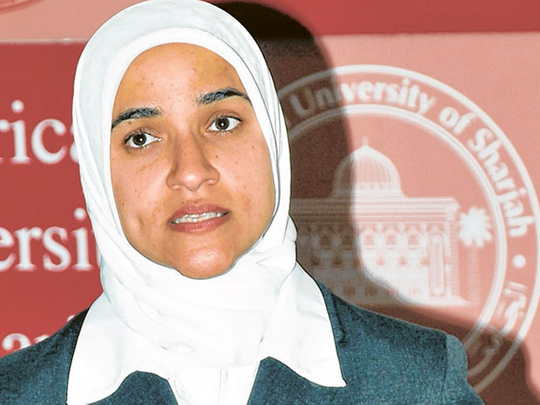
Sharjah: The optimism of the people of the Middle East and North Africa (Mena) following US President Barack Obama's Cairo speech to the Muslim world has since waned, a poll of the Muslim-majority countries has found.
Arab public who had initially showed optimism following Obama's August 2009 outreach speech in Cairo have since become less hopeful about the president's commitment to improve relations between Muslims and US.
The findings were published in a poll conducted by the Abu Dhabi Gallup Centre and announced by its director Dalia Mogahed, at the American University of Sharjah yesterday.
Between 2008 and 2009, the year that Obama came to office, the approval of the US leadership by Arabs jumped from 12 per cent to 32 per cent, according to Gallup's findings. Egyptians' approval of Obama, for example, reached 37 per cent two months after President Obama's speech in Cairo, but dropped to 19 per cent by February 2010. In 2008, during ex-President George Bush's final year of presidency, only six per cent of Egyptians approved of US leadership.
Between 2009 and 2010, however, approval of the Obama administration fell by five per cent in Lebanon, three per cent in Iraq, 13 per cent in Algeria, four per cent in Palestine, nine per cent in Morocco, and 27 per cent in Tunisia.
The survey also found that the public in Muslim-majority states of the Mena region held relations with the West in the highest regard compared to other Muslim-majority states, and showed the largest change in approval of US leadership since Obama's taking of office.
Mogahed also pointed out that a recurring prerequisite to improvement of relations as cited by respondents in Muslim majority countries was respect for Islam, particularly its symbols, such as the Quran.
"Middle Easterners are also most likely to say they respected the West," she said. Mogahed also said that the poll revealed that those who defined the perceived West-Islam conflict as a religious one were less likely to reconcile than those who regarded it as a political conflict.








